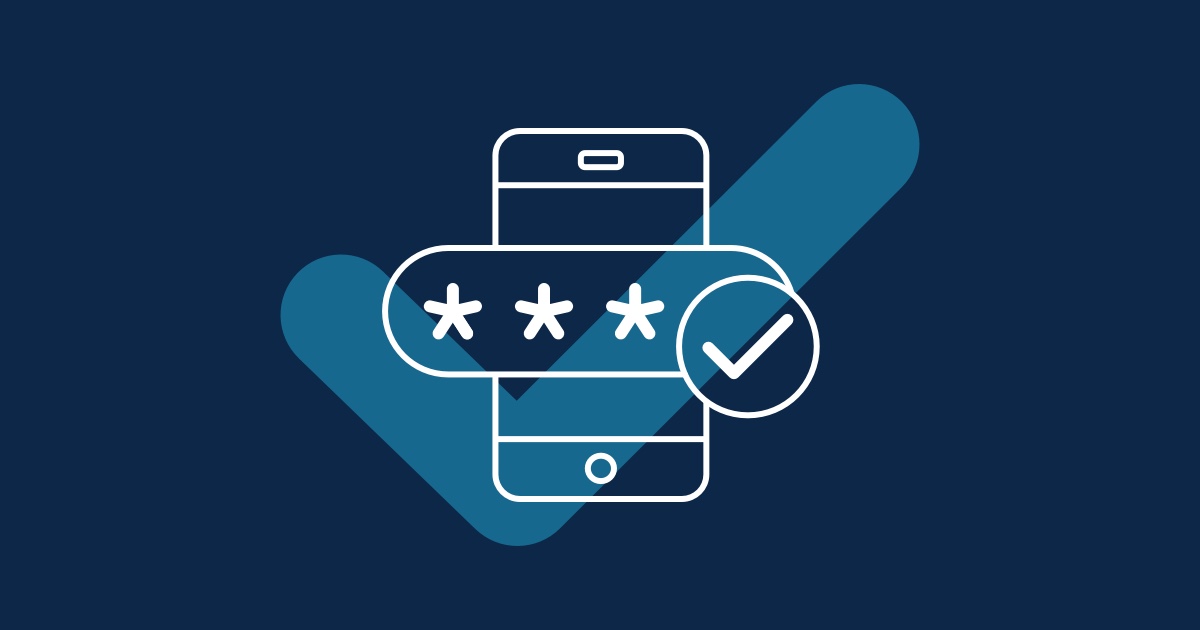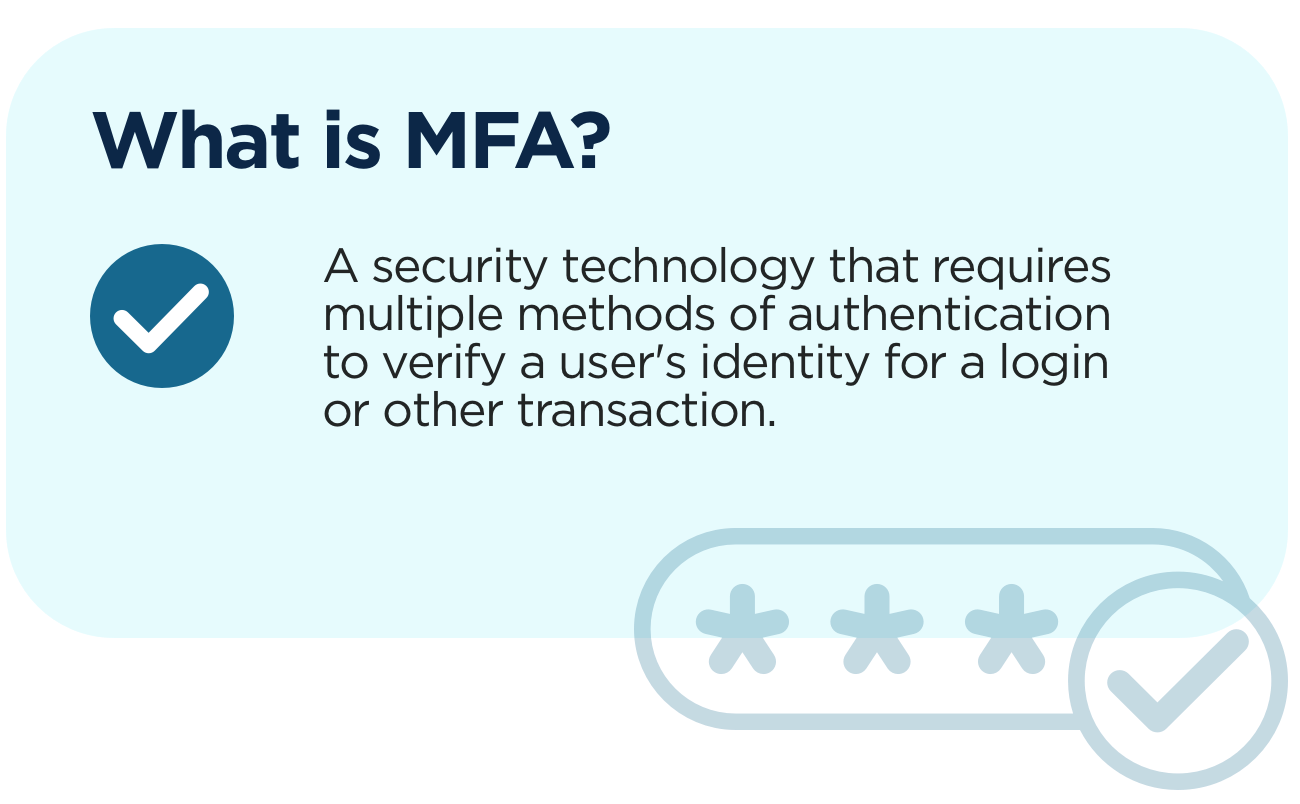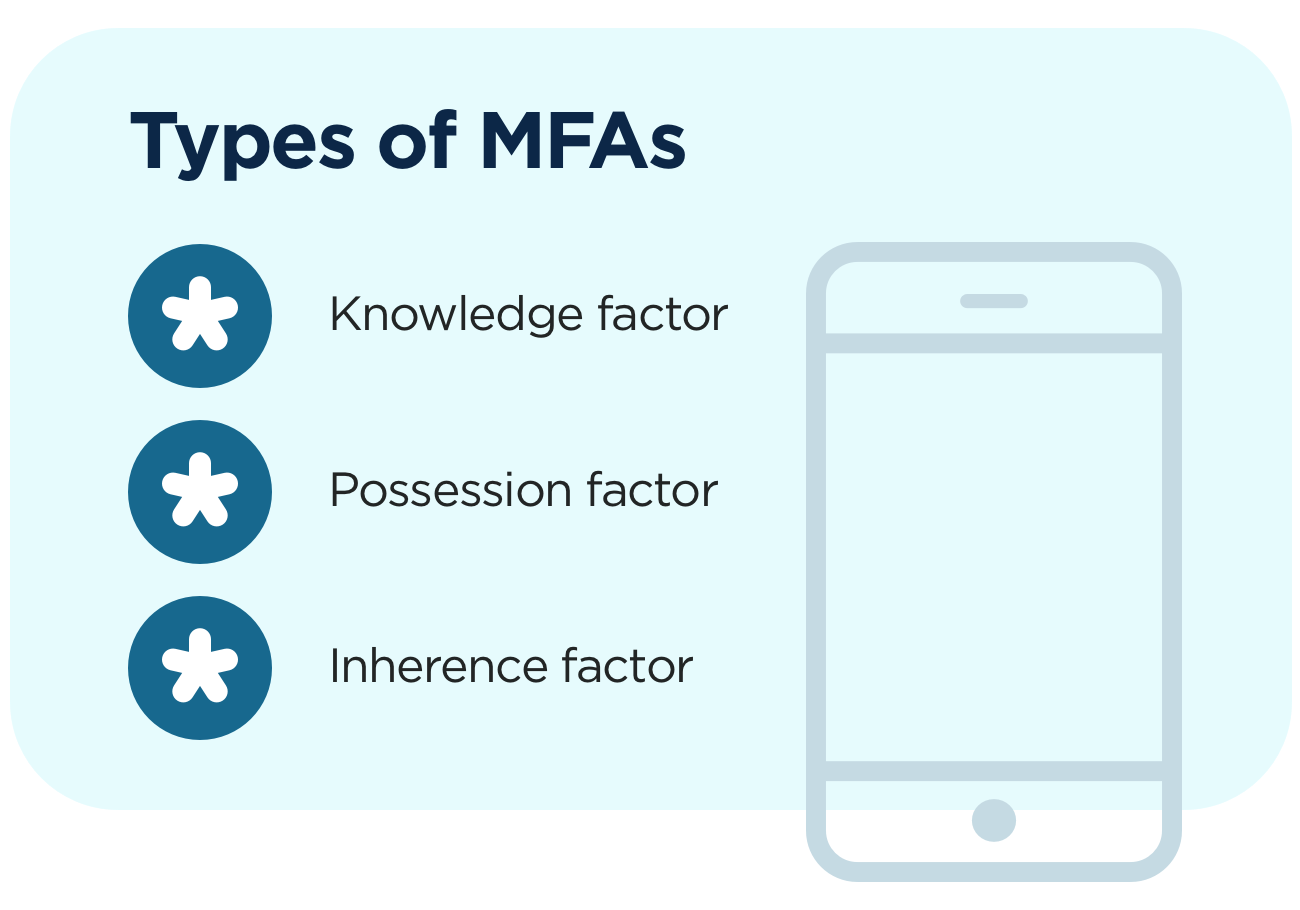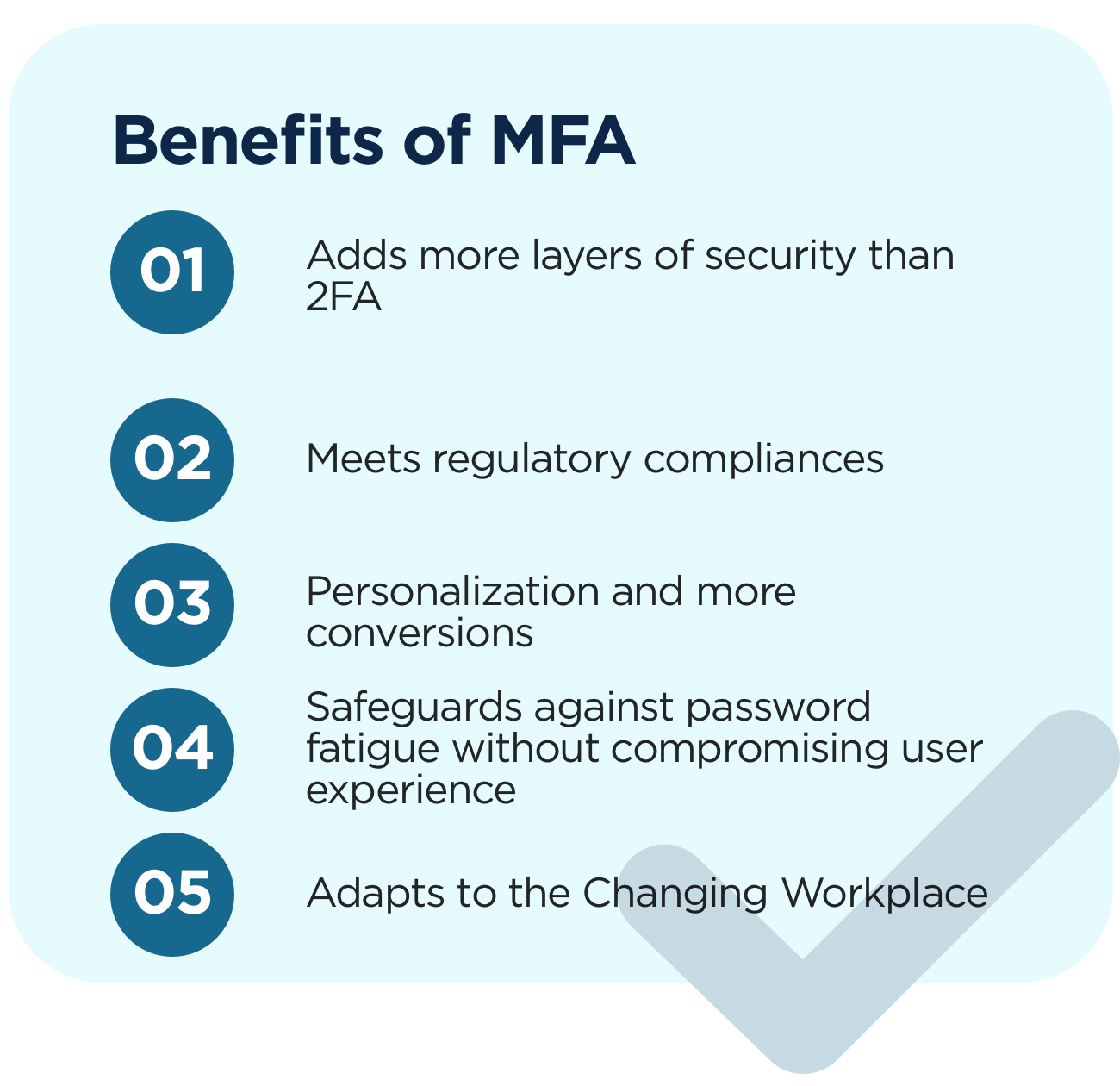
An introduction to Multi-Factor Authentication and its benefits
What is Multi-Factor Authentication?
Multi-factor authentication (MFA) is a security technology that requires multiple authentication methods to verify a user’s identity for a login or other transaction. Multi-factor authentication combines two or more independent authentication factors: what the user knows, what the user has, and what the user is.
The goal of MFA is to add more protection layers to make it more difficult for an unauthorized person to access a target, such as a physical location, computing device, network or database. More specifically, that means that if one factor is compromised or broken, the attacker still has at least one or more barriers to overcome to successfully attack their target.
In the past, security systems relied on two-factor authentication (2FA). Yet, as cyber-attacks increase, so does the use of MFA authentication schemes and organizations are focusing more than ever on creating a smooth user experience.

Types of Authentication Factors:
The three most common categories, or authentication factors, are often described as something you know (knowledge factor), something you have (possession factor), and something you are (inherence factor). For MFA tο work it has to combine two or more factors from these categories.
Knowledge factor asks the user to answer a personal security question. Knowledge factor technologies generally include passwords, PINs, and one-time passwords (OTPs).
Possession factor requires the user to have something specific in their possession in order to log in, such as a badge or phone subscriber identity module (SIM) card.
Inherence factor refers to any biological traits the user has that are confirmed for login. Inherence factor technologies include biometric verification methods.

The Benefits of Multi-Factor Authentication
Adds more layers of security than two-factor authentication (2FA)
As the word implies multi-factor authentication provides more layers of security when compared to 2FA. With risk reduction becoming increasingly critical for organizations, multi-factor authentication is growing exponentially. In a world where credential theft is constantly a threat and over 80% of hacking-related breaches are caused by stolen or weak passwords, MFA is becoming essential.
By adding another layer of protection with MFA, you can ensure that the customers looking for access are who they claim to be, thereby reducing the risks of compromised passwords and damaging attacks that cost organizations millions. So, even if hackers steal one credential, they will be forced to verify identities in another manner. For companies that store consumers’ confidential details, it is almost necessary to opt for more than two authentications, to build and maintain consumer trust.
Meets regulatory compliances
For many businesses, this is a key benefit of MFA. Since the implementation of multi-factor authentication can be a key requirement when it comes to complying with certain industry regulations, such as GDPR and HIPAA.
Depending on the country you operate in, it is common for health, finance, and government organizations to demand that businesses follow strict guidelines that protect consumers’ rights. It is therefore vital that you consider your business’s unique needs when determining your security requirements. You can mitigate audit findings and avoid potential fines by achieving the necessary compliance requirements specific to your industry.

Safeguards against password fatigue without compromising user experience
Passwords are a headache to remember, we can all agree on that. Yet, the average computer user has between 70 to 80 passwords to remember. That means that many consumers either resort to using the same password on different accounts or just go on creating simple, easy-to-steal passwords. Both methods are wrong and lead to easy password theft.
Adding multi-factor authentication protects against password fatigue, adding an extra security layer, ensuring that cybercriminals cannot steal simple or repeated passwords. It secures the environment, the people in it, and the devices they use without requiring complicated resets or complex policies.
In addition, MFA does not interfere with the CX experience and lets you customize the consumer experience. Therefore organizations can make it easier for users to authenticate their identity by providing them with a variety of factors to choose from like security questions, authenticator apps, email, automated phone calls, and many others.
Adapts to the Changing Workplace
COVID-19 and technology advancements have brought changes to the workplace, with more employees working outside the office. MFA can provide your remote workers with an extra layer of security.
Without the proper precautions in place, remote workers are more susceptible to attacks as they are not safeguarded by the firewalls attached to a company’s network infrastructure. Using their personal Wi-Fi connections and devices while they perform mission-critical tasks, can pose a much higher cybersecurity risk.
From basic attacks like email phishing to more complex attacks, MFA can protect your remote team against threats. Finally, multi-factor authentication plays a vital role in improving your organization’s overall security posture, by adding protection to business applications that are poorly secured and are targets for remote attacks.
To sum up
As an increasing number of companies move towards digital transformation, the need for cybersecurity is of foremost importance. Implementing a multi-factor authentication system is therefore critical and can yield important benefits to your business.
As for all of the above suggestions, MFA is an incredibly beneficial security tool that provides your organization with an added level of security, yet like everything, it should be implemented in the right way to not lead to frustration for your end-user. If you are ready to add that extra layer of protection to your systems, make sure you work with a company that’s familiar with multi-factor authentication best practices and you will for sure be safe.
